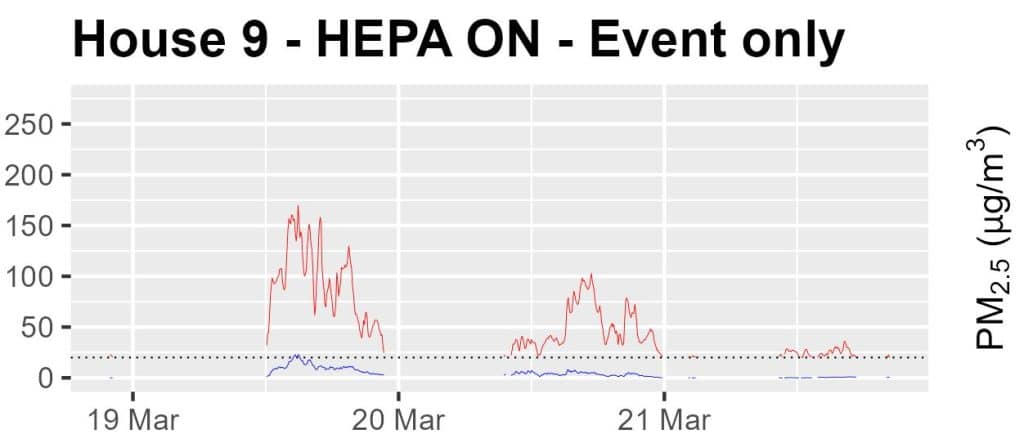Do HEPA filters work during bushfires? That’s a question many Australians have been asking themselves since the smoky summer of 2019-2020, when the deleterious consequences of ongoing smoke exposure became clear.
With a return to an El Niño cycle in 2023-24, bushfires have come back to the front of everyone’s minds in summertime. Even the arguably excessive precautionary hazard reduction burns can create long periods of smoke exposure in some circumstances.
Should you buy a HEPA filter for your home?
Researchers at Australian Catholic University (ACU) set up HEPA filters in homes located near scheduled hazard reduction burns in the bush in Victoria. They then measured indoor air quality with the filters turned on or off.
HEPA filters did improve indoor air quality. That said, the exact extent of the improvement is not easy to measure.
Most buildings start to show deteriorating indoor air quality from 60 to 120 minutes after smoke arrives outside. Every building’s permeability varies, however.
This makes it difficult to assess the benefit of air filtration. In real-world testing, smoke doesn’t always settle in the same place for a steady two-hour period. This means that each time a home is exposed to smoke, a different amount of airborne particles end up in the air inside.

This is why research on HEPA figures returns such variable figures. The ACU study found an improvement of between 30% and 75% in the homes they studied. This is in line with previous research, the authors noted, which found improvements of between 52% and 67%.
Despite the unavoidable imprecision, the study shows these filters make a crucial difference in situations of long-term smoke exposure. In almost any residence in Australia, indoor air quality quickly comes to match the air quality outside. Recommendations to close windows and switch air conditions to recirculate air can only buffer residents for a short time.
Feature image courtesy of @mattpalmer via Unsplash.
Sign Up To Our Free Newsletter